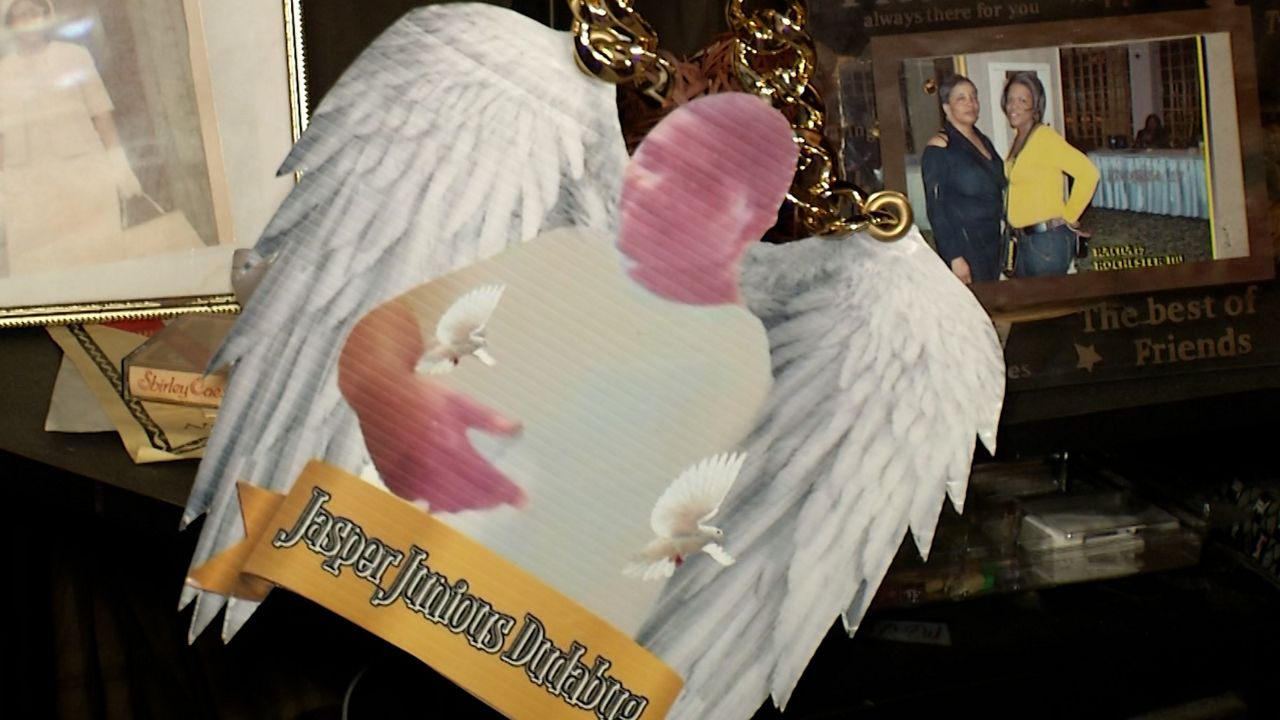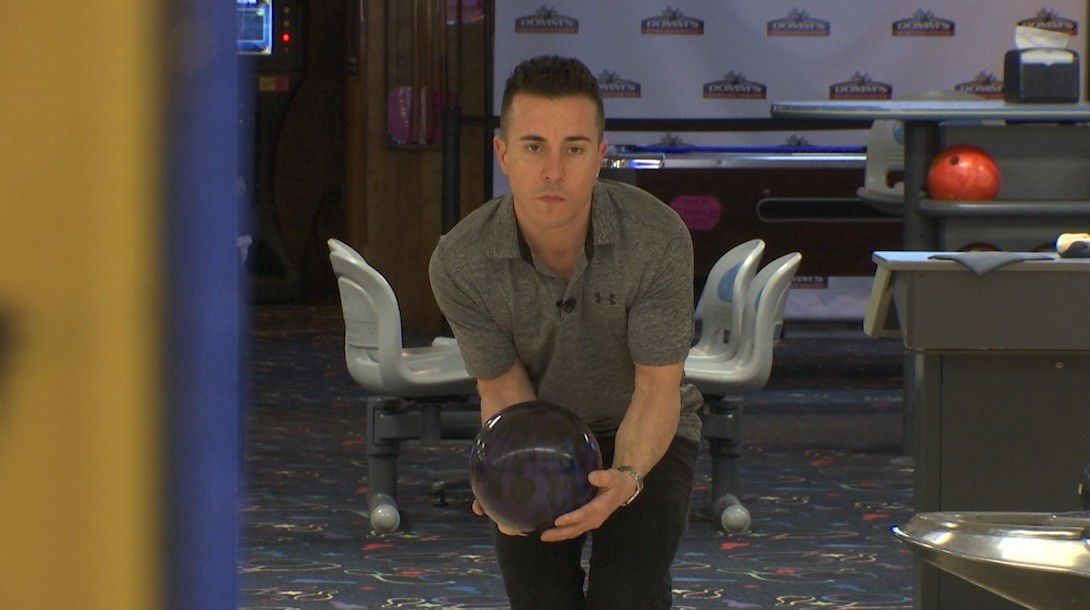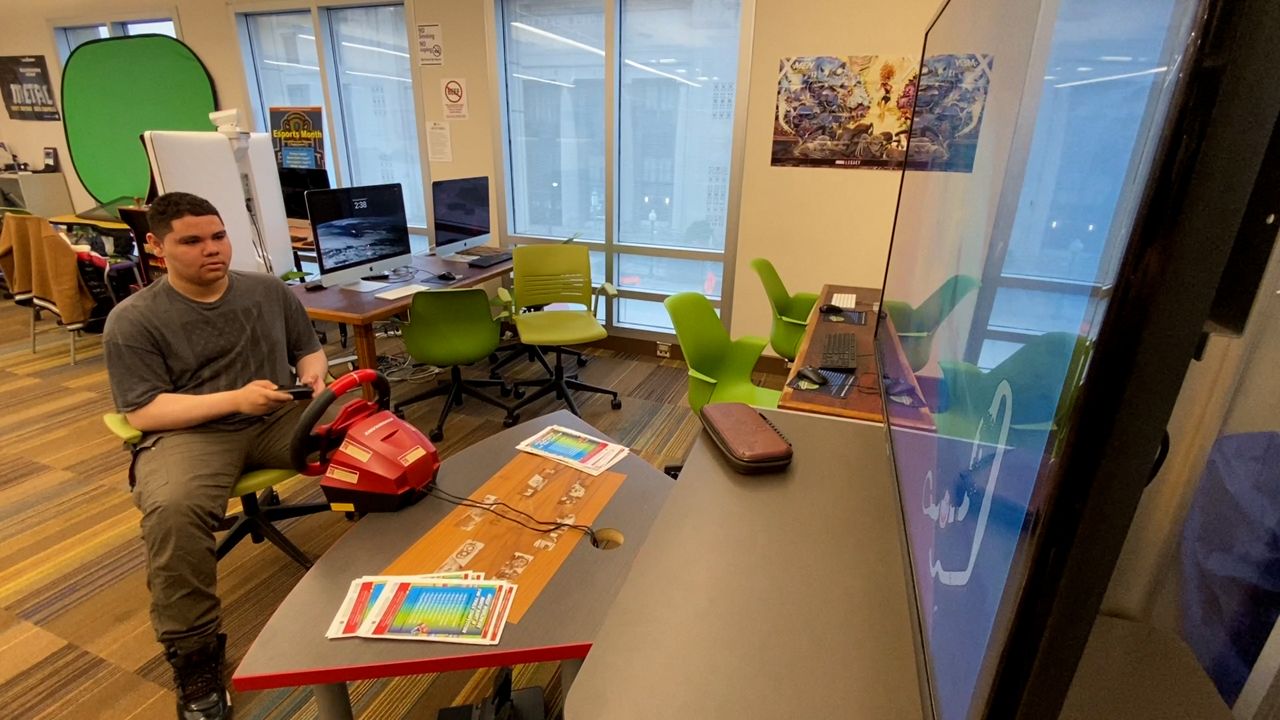ROCHESTER, N.Y. — The voice of the very first, first responders can often be forgotten.
“We are the voice that nobody really thinks about. Everyone thinks about the police, fire, ambulance, which is great. I mean, I support them 100%, but they don’t understand what we go through, or what voice, what trauma that affects us and we, go through a lot to process everything,” said Nicole Porter, city of Rochester 911 operator.
In her 12 years on the job, she’s seen a little bit of everything.
“As you imagine, we’re hearing all kinds of stuff, you know, people crying over their loved ones passing away. Just very high-strung,” Porter explained. “It can be anywhere from someone giving birth, like actively in labor to a house fire, it could be a shooting, it could be just a domestic-related incident. It can be a host of things, anything.”
However, there are the occasional calls that make her smile.
“I kind of like those calls though, if they need help with their homework or something. Those are great,” Porter laughed.
Although, that’s not advised.
Growing up in the county she now serves can be exhausting.
“You kind of have to take the call, do it, handle it and move on. Go to the next one, and just, you have to know that you did everything you can to get the job done and get them help, but it’s ... you kind of have to leave it there. Like once I hang up with the call, like, that’s it. Because I have to be ready for the next one and I have to be my best self so that I can help the next one,” Porter explained.
“It’s a lot more challenging than people realize,” said Michael Cerretto, director of the Emergency Communication Center for the city of Rochester.
The long hours, and mentally and physically exhausting work have taken a toll on Cerretto’s ability to hire help.
“This is the highest we’ve been this year was the most we lost. So we hired 25 people and we lost 41. Of those 41, seven were new trainees that were ... they never made it to being certified. But we lost a significant amount of veteran personnel and that hurts us as an agency,” Cerreto explained. “We’re very shorthanded like the rest of the country. It’s not just a local issue, it’s a nationwide issue. I think a lot of it has to do with the multiple shift work that people have to work to work here. You know, we have to cover 24/7, seven days a week. So it’s, it’s their hours are not ideal, but it’s a very rewarding career.”
Consequently, for current staff, it doesn’t make the job easier.
“We get mandated quite a bit. It’s unfortunate, but that’s the hard part of it. So we’re trying to get people in the door so that, you know, we get people trained and they can help with that. But I do get mandated quite a bit,” Porter said.
That’s why she’s been helping train incoming employees to be the best they can be in the profession. It’s one of the reasons Cerretto says she’s a leader at the agency.
“I think that even though staffing is low and they’re working a lot of hours, they do the job they’re getting paid to do, and I think they, a lot of them do it because they care. And I think that’s what brings people into this profession and that’s what we’re looking for, is people that want to help people, that maybe being out, out in the field isn’t for them, but they still want to do what they can to help their fellow citizens.” Cerreto said.
At the end of the day, it’s a job Porter leaves at the end of every day with a feeling of accomplishment and job security.
“I’m really proud. Like there is nothing like you may have a mom who’s in labor, she’s literally pushing and you’re hearing the baby cry for the first time, or you’re giving CPR instructions and you get to save them and somebody actually makes it because of you. Those kinds of things wouldn’t have happened if we weren’t here," she said.
“Yes, I really am proud of what I do.”









